Ecommerce has revolutionized how artisans and makers sell their handmade goods. It has become increasingly easier for creative DIY entrepreneurs tostart a business, from scratch, online.
Still, as creatives and makers, it’s easy to forget about the business-side of, well, your business! Merchants that create their own products by hand are more invested in their product. They pour their heart, soul and energy into each and every item they produce.
Some artisans might not see the business opportunity or the opportunity to make a living or side-income from theirpassion. While others, see the opportunity to build a real brand from their creations, not just selling one-off products.
Learn More:Get ideas forthings to make and sellonline.
I recently had the chance to talk with four handmade goods merchants: Coralie, who sells handmade jewelry atCoralie Reiter Jewelry, Robin, who sells modern leather goods atFitzy, Sahnda, who sells soft sole baby shoes atSahnda Marie Kids, and Valerie, who sells leather goods with her husband Geoffrey atWalnut Studiolo. I asked them about their passion, how they turned their passion into an online store, and how they managed the marketing and business side of their company, all while creating their products by hand.
They provided tremendous insight into their businesses so I decided to highlight my favorite answers to my questions and the responses I thought you will get the most value from. You’ll learn what it takes to turn your passion and hobby into a real business, how easy it is to set up an online store even if you lack technical experience, and the tools and marketing strategies that worked for these merchants.
Here are the top tips these shop owners shared to help other makers:
1. Know your style. What are you skilled at making?
Let your skills and interests guide you. If you're amazing at cross-stitch or resin casting, start there!
2. Launch just a few products first
Start small. Run through yourstore launch checklist, release a few products and assess how your audience likes them. That can give you valuable data on the direction to take your other projects.
3. Focus on high-quality local materials
People go for handmade because they love quality. How can you choose high-quality local materials that will set your business apart?
4.Promote with email, social media, and blogs in your niche
Get the word out! Build a community on the platforms where your audience already hangs out.
5. Your online store is your brand’s first impression
Your ecommerce site is your very own digital storefront. Make sure it feels professional, welcoming, and on-brand.
6. Take time to learn business basics
A solid foundation in business basics will serve you well as your business grows.
7.Find community with other small business owners
Collaboration, not competition! Connect with other entrepreneurs and makers to share knowledge and help each other level up.
1. Tell me about your business and product and how you came up with the idea for it.

Coralie Reiter Jewelry: I make textile jewelry using cotton thread, cord, rhinestones, natural stones, pearls and beads. It all started when I used a bunch of different colored thread and started wrapping it by hand. From that, I started making necklaces and bracelets. The result was jewelry that’s super colorful and unique. My style is a little bit tribal, and also very modern. I make each piece meticulously by hand.

Fitzy: Fitzy is a line of modern handmade leather goods, with a focus on accessories. I use high quality materials and clean minimal designs so that my products stands the test of time. Some of my products include cord organizers, wallets, keychains, bow ties, and fanny packs. Fitzy is all about less but better.
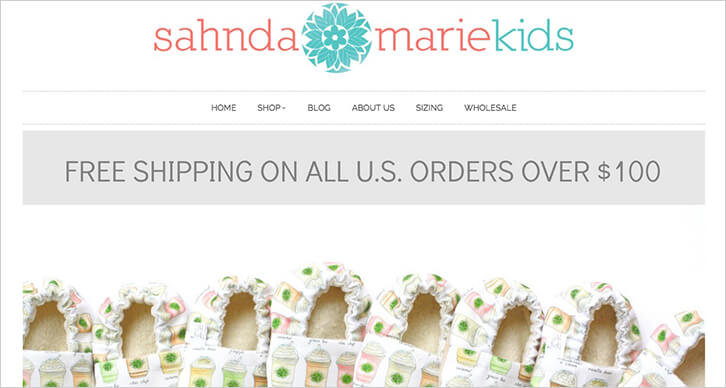
Sahnda Marie Kids: I began making vegan friendly soft sole baby shoes in late 2013 shortly after the birth of my youngest daughter. I decided to start making baby shoes after I had searched the internet, and couldn’t find anything I really liked. I couldn’t find anything that was both comfortable, and stylish. After researching the internet for different materials I found the perfect organic fabrics for lining the shoes. I loved the idea of my baby’s feet being nestled in soft organic fabrics.

Walnut Studiolo: Walnut Studiolo is a designer and maker of unique leather goods for bicycles, beer, and more. My husband, Geoff, has always been artistic, but he learned his design skills (and value engineering skills!) at the University of Oregon Architecture School, where he went to college. Leather came naturally to him as a material for its unique combination of flexibility and strength, and from summers spent riding horses on his family's ranch in Eastern Oregon.
2. How did you get started selling your handmade goods online?
Coralie Reiter Jewelry: Years ago I worked at a fine jewelry store in my hometown of Ft. Lauderdale. I used to sell watches and engagement rings and I never enjoyed it because my dream was always to make my own jewelry one day. I finally do make my own jewelry, but for now I use much more simplified materials than gold and diamonds.
I now live in Los Angeles and I started making my handmade jewelry by chance by wrapping thread and a lot of experimenting. I wore my necklace out and women were complimenting my jewelry and asking where I got it, so I knew I had something.
Learn more:Merchandise planningtips from savvy ecommerce directors
I first started selling online when I opened up an Etsy shop almost three years ago and posted three different styles of necklaces. I remember it being one of the most nerve racking experiences because I had never sold anything I made online, and it felt very personal and scary. Once I started getting orders from all over the US and abroad, I started to gain confidence that I had a product that was unique and customers were responding to it.
我搬到Shopify因为我想要一个网站was both flexible and stylish. I didn’t want to have to deal with learning too much code, but I also wanted customize my site freely. I really love how Shopify has apps that you can download into your template so that you can really get what you want out of your site. It makes it so easy, which I love. With my online shop I can now capture emails (so important), find out where my customers are coming from, have a stronger SEO presence, reach customers through new channels, host contests, etc.
Pay attention to detail and be as organized as possible. If you have an idea for something but can’t afford to do it, figure out a way to do it yourself!
Fitzy: I'm a bit of an accidental business owner. Fitzy started in January 2013 as the result of a 365 project I was doing. After graduating from OCAD University in Toronto with a BFA in Sculpture/Installation, I was looking for ways to keep my practice fresh and stop myself from overthinking. So I decided to make something every single day for a year, and blog about it. After much prompting from friends and family, I decided to start selling some of the things that I was making, and Fitzy was born.
Sahnda Marie Kids: I had already been selling handmade handbags before the birth of my daughter. I was selling online, and at craft shows. I had a craft show coming up, and decided to bring my baby shoes instead of my usual handbags. The shoes were a hit so I added them to my Etsy shop after I got home. I already had an Instagram account for my personal photos with about 20 followers. After the craft show people started finding me on Instagram including bloggers. My Instagram following has grown to over 27K since then.
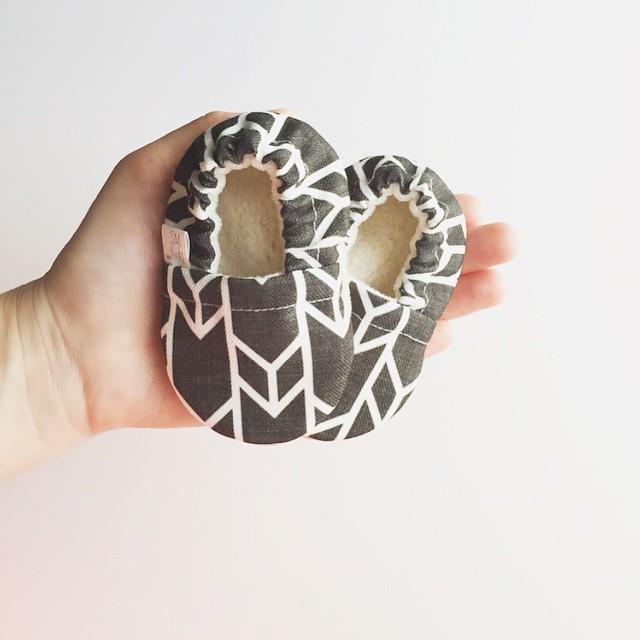
I wanted a professional looking store that I could customize myself. With Shopify the options are endless with the variety of themes and apps. What has impressed me the most has been the amazing customer service. Anytime I email questions to Shopify I get prompt responses with great information.
Shopify Academy Course: How to Get Started on Shopify
Looking for a guided tour of Shopify? Merchant Success Manager and entrepreneur, Samantha Renée, shares steps to customizing your shop, adding a product and making your first sale.
Enroll for freeWalnut Studiolo: It all started in 2009 when trained architect and draftsman Geoffrey Franklin was looking for a way to carry his u-lock on his bicycle. More than once, he had forgotten his lock during his morning bike commute, and grumpily had to skip lunch because he couldn't take his bike out for lunch without a lock. Uninspired by what he saw in the market, he created a leather u-lock holster so that his ulock would always have a place on his bike and he wouldn't forget it again. His wife Valerie thought the ulock holster was a great idea and asked if she could put it up on Etsy. Inspired by the classic leather bar wraps seen in old sepia-toned photos of historic Italian racing bikes, Geoff also designed a series of leather bar wraps, and tested them out on his daily commute. As the Etsy listing started to accumulate sales, we grew from a side gig to a full-time family business by 2011.
In 2012, when we were both working on the business full-time, it became clear to us that we needed to"graduate" from Etsyand create a site that allowed us to create our own content and present it the way we wanted to, create a direct connection with our customers, and further our brand. We compared Shopify with other majorecommerce platformsat the time, and Shopify presented the most compelling combination of cost, features, and benefits, with the additional assurance that it was a flexible platform that would allow us to grow with it, and add functionality easily through a large library of apps. For a small business like us, Shopify is perfect for being able to create a professional website at a low cost using commercially available solutions, and yet unlike Etsy, it allows for a wide range of flexibility in branding our site as our own webstore.
3. What do you love about running a handmade business?
Fitzy: The thing that I love the most about running my own handmade business is the amazing community of makers that I've met along the way. No one better understands what it's like to run a handmade business than other people who are doing it too. They're not only an amazing wealth of information and support, but they're great to have a beer with too!
I started Fitzy thinking all about the product side of things, and not the business side of things, but now I know that they're two halves of one whole.
Learn more:12 Creative Ways to Make Money.
4.多迪d you source the materials for your products?
Fitzy: I try to source the highest quality materials possible for my products, as locally as possible. I found my suppliers through some trial and error and a lot of Googling.
Walnut Studiolo: We are lucky to live in Portland, Oregon, a city of crafters and makers, and the site of one of a very few independent leather supply stores,Oregon Leather. Oregon Leather is one of only a handful of locations in the country that carries the particular brand of US-raised, US-tanned leather that we use.
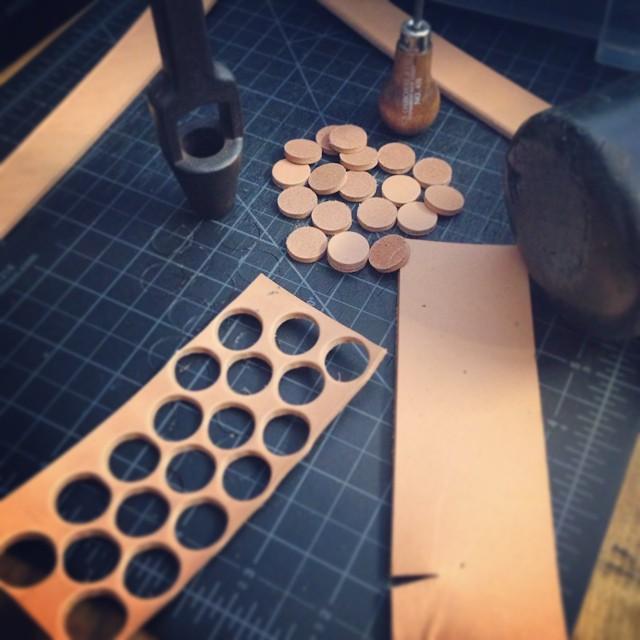
5. How did you promote your business initially and where did your first sales come from?
Coralie Reiter Jewelry: Two months prior to launching my business on Shopify I started a通讯page announcing my shop launch and sale. I posted about it regularly on Instagram, Facebook, Pinterest, and on postcards to include in any orders that went out prior. Anyone that signed up would get a coupon code emailed to them on launch day. By the time the day came to launch my Shopify site, I had a decent list of emails and the sales came in rather quickly after my email went out.
My first sales on Shopify came from those emails and social media posts. I still have a newsletter signup bar on my Shopify site that links with my email provider so that my newsletter list can continue to grow. Periodically I send out shop announcements, sales, coupon codes and any cool event that is going on with my brand. When you have an online business, you really have to get attention from potential customers through as many avenues as possible.
Walnut Studiolo:我们最初测试市场,Etsy商店ob欧宝娱乐app下载地址and had our first sales on there. We still do have an Etsy store, but the percentage of Etsy vs Shopify has shifted every year in favor of our Shopify site as our brand gets established. After the launch on Etsy, we got our first big break when we decided to put up a card table at BikePortland.org's BikeCraft Fair, a local bicycle-themed craft fair that happens every Christmas season in Portland. That year, 2009, saw a couple great bicycle accessories businesses get their start at BikeCraft.
BikePortland.org, Portland's major bicycle blog, wrote up a review of the fair and called attention to us as a new business making functional leather bicycle accessories. Because Portland is the country's most active bicycling city, bike blogs around the world read BikePortland, and the blog posts just continued to stack up, calling attention to us in greater circles, with full credit to BikePortland.org
6. Any major media mentions or PR wins since then? What specifics steps did you take to get them?
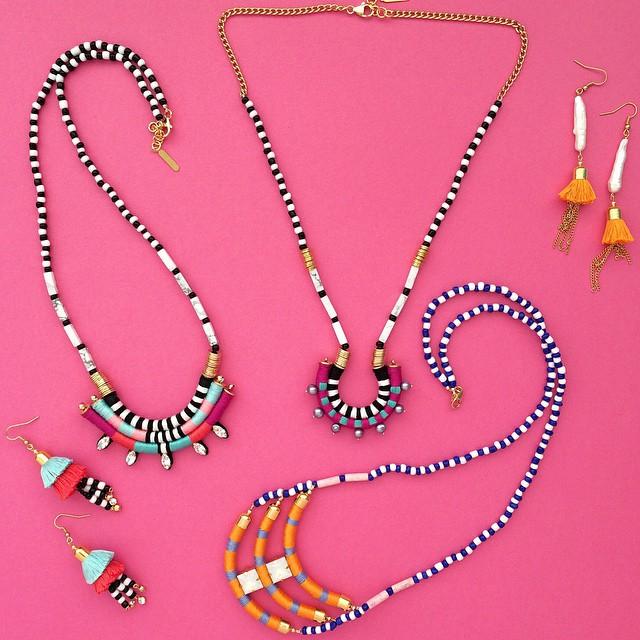
Coralie Reiter Jewelry: I researched PR agencies in the beginning and quickly realized how expensive it was. So, I took matters into my own hands. I opened up an Instagram account and I post my products regularly and linked it to my website, and that has been a huge boost. Not only can it generate sales but I was able to reach out to bloggers and gain attention.
I caught a break last year and got featured on a very influential blog, theOh Joy blog. It was a high point for me because it really started to put my shop on the map. I am so grateful for that opportunity.
Fitzy: I started my business by attending craft shows all over the city, and promoting my online shop through those shows. Currently I use social media, and word of mouth as my primary means of promotion. My first online sales came from customers I met in person at craft shows.
7.你怎么销售皮卡吗?
Sahnda Marie Kids: My sales have been steadily increasing mainly by social media exposure, blog reviews, and participating in giveaways.
Walnut Studiolo: Our sales picked up thanks to all these blog posts, friend-to-friend referrals, social media, and media mentions. Each successive post introduced more people to us, and we pride ourselves on having great customer service, so we can keep our customers happy. Word of mouth and person-to-person referrals are the main reason for our success.
8. What channels are currently generating the most traffic and sales for you?
Coralie Reiter Jewelry: Social media has been a huge help for me. Instagram in particular has been wonderful. Being someone that used to really shy away from it, I now fully embrace it. I think customers like seeing my journey, glimpses of day to day life, or just pretty pictures! A lot are taken with my iPhone but I highly recommend using a DSLR camera and taking professional pictures or learn how to.
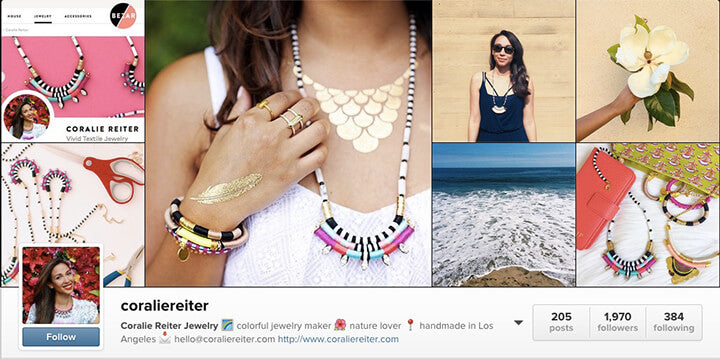
Sahnda Marie Kids: I get the most traffic to my site from Instagram, Pinterest and Google. An amazing feature with Shopify is the ability to edit your product titles and descriptions specifically for SEO. If you don’t know about SEO you should definitely research it to help get more exposure from search engines.
9. What are your top recommendations for new store owners? What would you tell other people/artisans looking to start a business selling their handmade goods?
Coralie Reiter Jewelry: As much as it helps to have funding, you can do a lot with very little. Pay attention to detail and be as organized as possible. If you have an idea for something but can’t afford to do it, figure out a way to do it yourself! It will probably take way more time, but the rewards are immeasurable.
Also it’s very important to have a carefully executed website. This is essentially your portfolio to really show off who you are as a brand and all your products in a professional way.
I highly recommend to other artisans out there to open up an Instagram account and be consistent with it. This is your chance to be seen, drive traffic to your website, and market yourself to people around the world. And sure, a lot of it might seem pointless, but its worth it if you catch the eye of potential customers or retailers. Also, a good amount of peers in your industry will be your audience and this is a great way to inspire and support each other.
Fitzy: My number one tip for all new store owners would be to build a great networks of biz buddies, like minded individuals who you can bounce ideas off of, answer questions, share resources, and vice versa.
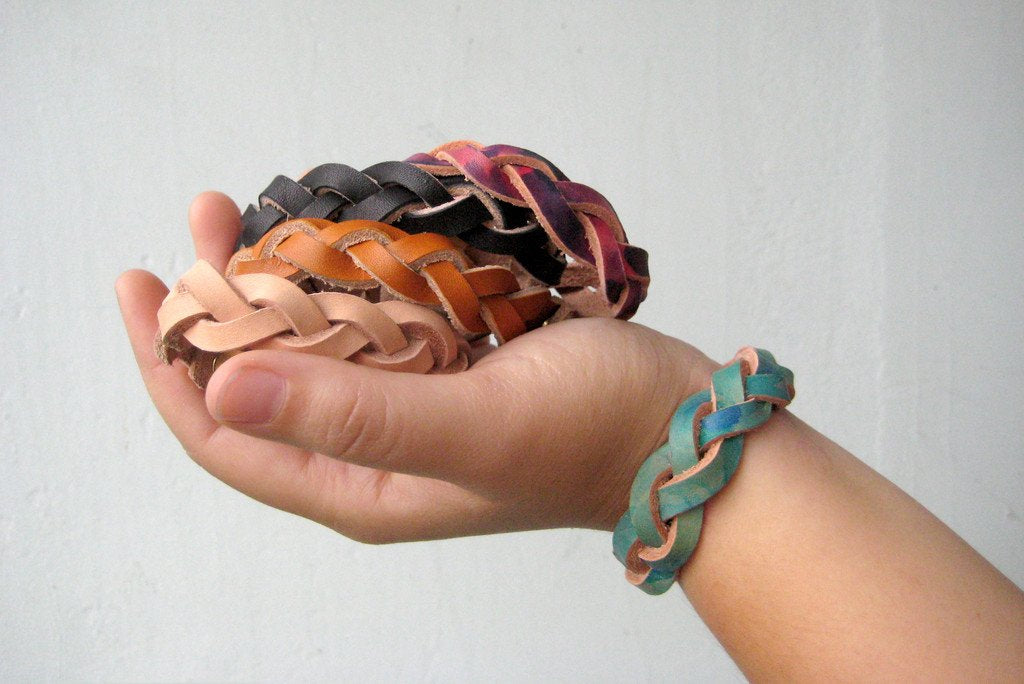
Sahnda Marie Kids: As for people looking to start a handmade business I'd tell them to make sure that you really, really want this. Running a successful handmade business is not a quick easy way to make money. It's really hard, it takes a long time, a lot of work, and it will not make you rich, but it's also amazing. I love what I do, even when I don't.
When starting a new business I would recommend creating a product and business model that hasn’t been done yet. Nobody is reinventing the wheel at this point, but it’s a matter of using your creativity to create something that is truly different, and unique. Basically don’t try to base your business off something that is already in existence. Next, have a professional looking website, be very active on social media, and plan ahead for the possibility of your product gaining quick popularity. If this should happen you’ll want to be able to accommodate the demand. Just because you start off small doesn’t mean you should think small. Think big, and others will think the same of your business.
Your creativity is was what drove you to sell handmade products in the first place, and when you use that creativity your audience will be excited about what you’ve created.
Walnut Studiolo: Invest in great photography. Use a talented photographer who can tell the story of a product being used, not just a documentation of it.
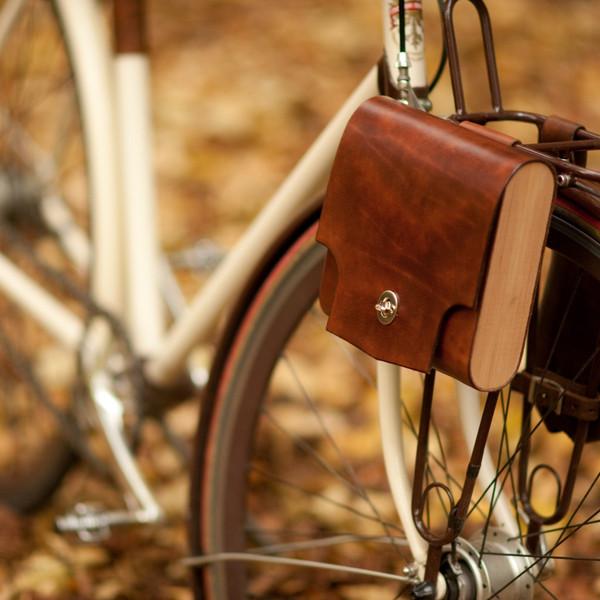
Learn as much as you can about SEO, even if it's not interesting, because there are a lot of untrustworthy companies hawking SEO services these days. You need to know enough to be able to articulate what you need. Google is way smarter than you about this, so you will not be able to "trick" your way up the list. The best way to improve your SEO without investing in special consultants is to just keep your head to the ground and do what you do best by creating genuine and useful content. Google is always rewriting the rules to reward people making genuine content, and to weed out people making SEO fake content. Build it well, write blog posts that your customers will be interested in, create product descriptions that will sell your products well, and work with relevant blogs and media to promote your product and the SEO will come.
10. What was your biggest mistake and what did you learn from it?
Fitzy: Not learning about the business side of things right away. As a maker who never took a business class in her life, I started Fitzy thinking all about the product side of things, and not the business side of things, but now I know that they're two halves of one whole.
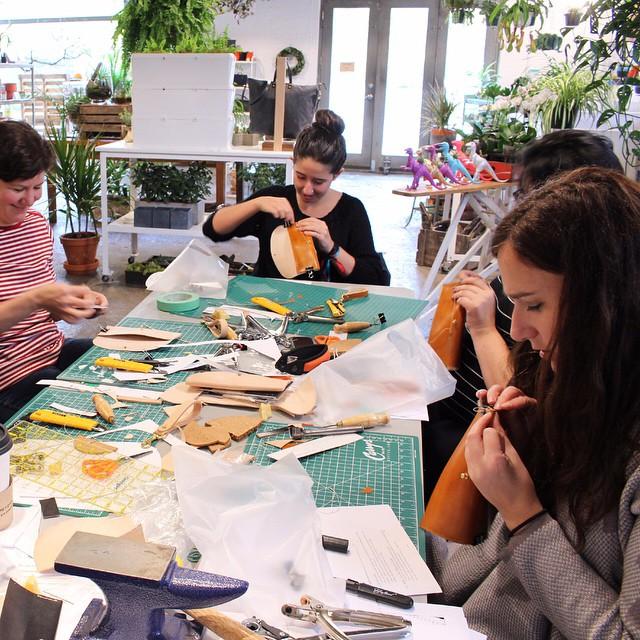
I totally underestimated just how much work the business side of things would be. I thought that if I made beautiful products they'd practically sell themselves. Boy was I wrong. I know now that it takes a lot of work tolaunch a businessand drive qualified traffic to your site, it's not something that happens overnight.
Sahnda Marie Kids: My biggest mistake was not being prepared for the demand of my product. I looked at my business as something small, but when popularity hit I wasn’t able to keep up, and people actually got upset when they couldn’t order. Anytime you have to pause your business you lose crucial momentum. So plan ahead for this possibility.
11. What are some of the challenges of a handmade good business that you've had to overcome?
Coralie Reiter Jewelry我相信我有两个挑战,一个手工制作的good business. One, is competing with bigger brands and two, is being viewed as a respected designer good and not just a crafted good. Competing with larger, mass produced brands making similar products in my category will always be a challenge to overcome. They have the ability to distribute so vastly and discount their products so much that it sets a huge amount of pressure to do the same. For now, I am a one woman operation, so I have learned to really focus on my brand and educate my demographic on the specialness of buying handmade. I hope that more consumers will choose to shop at small handmade goods businesses more often in the near future.
Walnut Studiolo: The only thing really different about a handmade business and another business is that we have a whole other universe to worry about: production. The bad thing about that is, we have so much more work to do, so many more man-hours to put in. If we get a big order, we have some limitations to our ability to scale, and if we need to scale up, we have to hire and train somebody. The good thing about that is, we are able to keep our business simple and incontrol, and keep a lean inventory. We don't accidentally overinvest in products and then have big sales to get rid of them. We can make what's needed, when it's needed. And this small batch, lean system, means that we've been able to work out of our house for the past 5 1/2 years. We have a very small footprint, both physically and environmentally, and a short supply chain.
12. What are some tools/resources you recommend to other handmade good merchants looking to sell online?
Fitzy我去网上业务资源基于“增大化现实”技术e blogs, specifically ones about running a handmade products business. While it covers businesses thatmake, manufacture, and dropship productsas well, the Shopify blog is also a must read.
As a handmade business owner it's especially important to be active on social media. It allows customers to see the maker, the story, and the process behind the product, which is a big part of what they're paying for when they shop handmade. My social media channel of choice is Instagram, and I like to use two other apps with it, to make my life easier. The first one isLater, which allows you to schedule your Instagram posts in advance from either your desktop or phone. The second isIFTTT. I use it to automatically post my Instagrams as native Twitter pictures. IFTTT runs tiny little programs on your phone, like the one I just mentioned, that help make your life more efficient.
Sahnda Marie Kids: Some of the most useful information I found when I started was through different handmade community message boards as well as researching the internet. One of the biggest hang ups I hear so much about is the fear of shipping. I would recommend getting your own scale and printing your postage from home.

I personally loveShipstationand highly recommend it. You can even print international shipping. Another possible source of useful information can sometimes come by way of simply asking another shop owner. Although some may be reluctant, others may give information freely. It’s worth asking though.
My best advice to anyone looking to create and sell handmade goods is to find your own voice. If you’re going to create a similar product to what’s already out there, make it your own. Be a first class you rather than a second class of somebody else. Your creativity is was what drove you to sell handmade products in the first place, and when you use that creativity your audience will be excited about what you’ve created.
Turn your passions into profit by selling handmade goods online
Now it’s your chance to turn your passion into profit. The one thing I noticed from these handmade goods merchants is that they all encountered challenges in their businesses, and they all made mistakes. They weren’t business experts or extremely technically savvy people at the outset. Yet, they persevered and succeeded to create a business around their ability to create something amazing with their hands.
If you’re a maker that wants to start a business or you just want to start a business, let me know in the comments below. Tell me all the things, fears and barriers that are holding you back from that next step. If you know someone talented that needs to be monetizing their passion, share this blog post with them.


